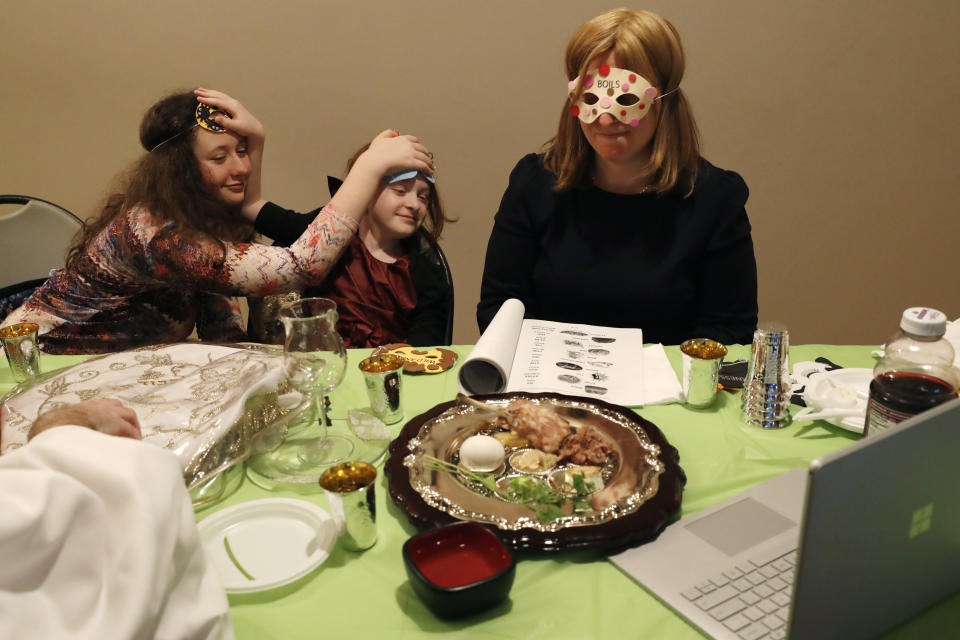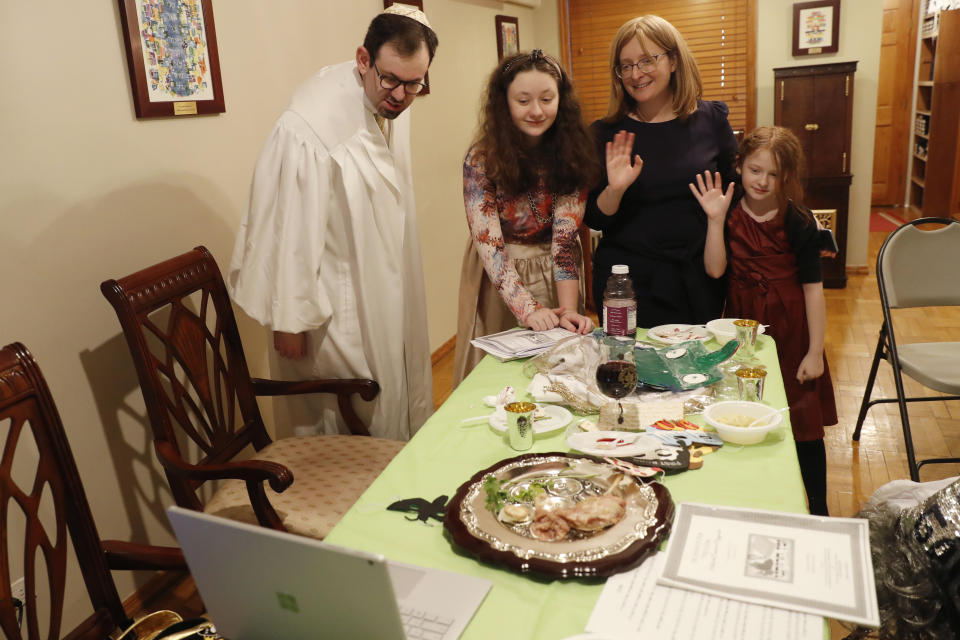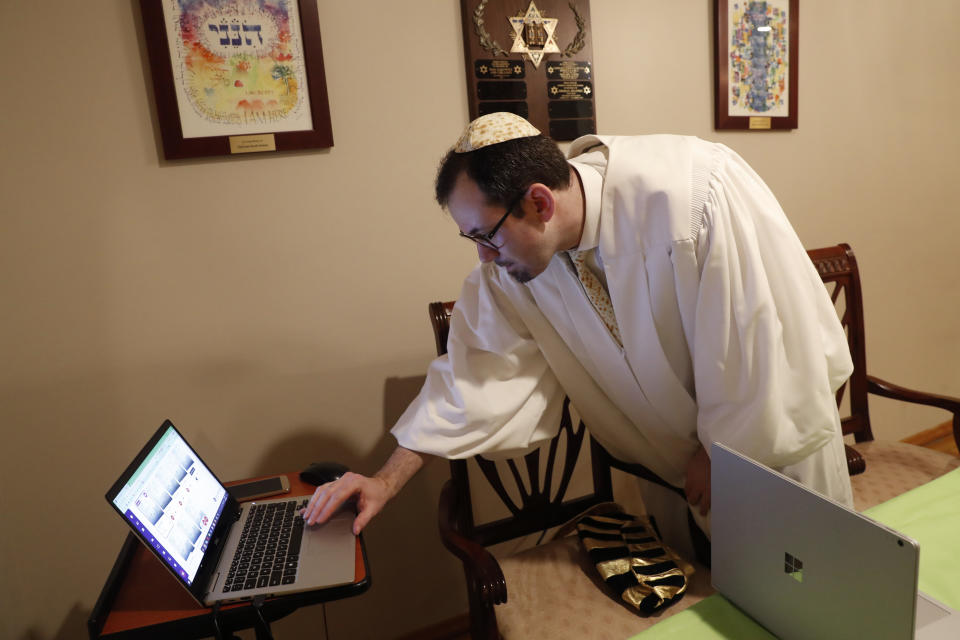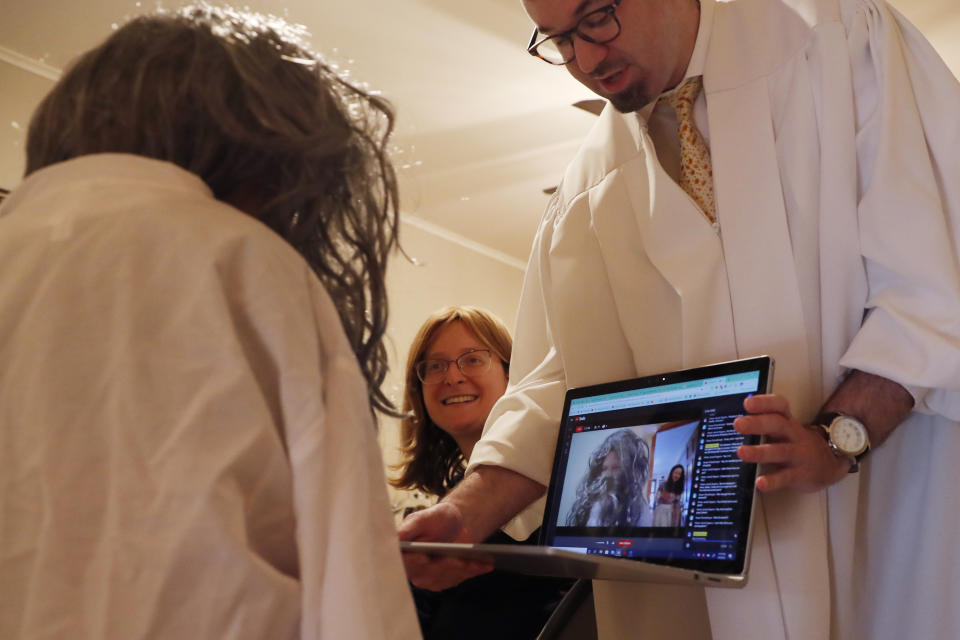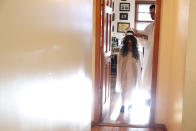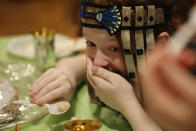AP PHOTOS: Brooklyn rabbi leads the way with virtual Seder
NEW YORK (AP) — For centuries, on the first and second nights of the Jewish holiday of Passover, the youngest child has asked his or her elders, “Why is this night different from all others?”
This year, the nights are truly different. And Rabbi Shlomo Segal is among the spiritual leaders who are adapting to a Passover in the shadow of COVID-19.
The 40-year-old self-described “liberal” Orthodox rabbi has brought his Seder to YouTube, so that Jews can mark the holiday traditionally, even without the tradition of family gatherings.
“We’ve never done virtual Seders here, but Passover is an important time. The virtual Seder was in the context of how we’re responding to the COVID-19 crisis. In times of crisis, people turn to faith,” said Segal, leader of Congregation Kehilat Moshe in the Sheepshead Bay section of Brooklyn.
Said Segal’s wife, Adina: “Things are so tenuous now. We want to try to keep our ties with our community. People do need spiritual nourishment.”
Segal started conducting Friday evening Shabbat services via YouTube several weeks ago, when social distancing rules were put into place in New York.
Most Orthodox synagogues dismiss online Shabbat prayer because it is forbidden to use electronic devices on the sabbath; Segal finished his services before sunset, to abide by those rules. Some Orthodox authorities have said virtual Seders are acceptable, while others would forbid the practice.
Segal’s synagogue includes a range of congregants, from the very observant to those minimally so. To keep people engaged, including his own 8- and 12-year-old daughters, “I generally inject a lot of humor into my services while maintaining an essential dignity,” he said.
Online Seders are an invention born of necessity, Segal said.
“All I know is that when circumstances abruptly change ... we need to adapt and serve effectively,” he said “We felt that this was a time that required flexibility. It’s tough times.”


